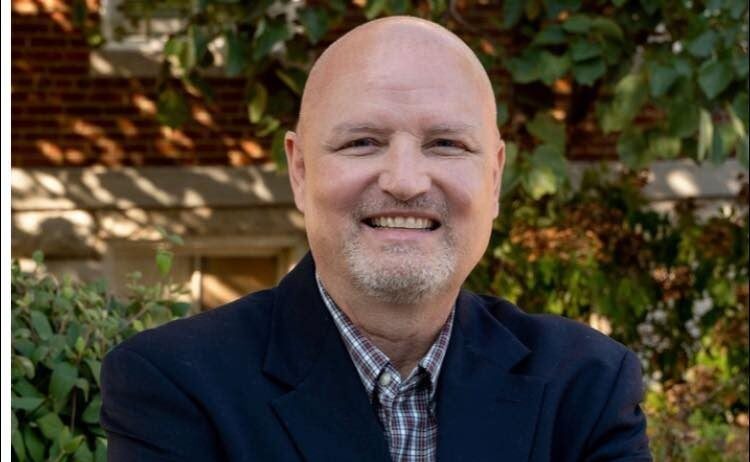Special Commissioner’s report on Lincoln Circuit Clerk hearing made public
Published 7:14 pm Thursday, May 2, 2024

- Dwight Hopkins
|
Getting your Trinity Audio player ready...
|
Following a two-day evidentiary hearing held in February, the Administrative Office of the Courts has made the Special Commissioner’s findings of fact, conclusions of law and recommendations public.
According to the AOC, the Commissioner’s findings are now part of public record, but the Court had yet to officially adopt them as of Monday this week. Further briefing may be required, leading to the Court’s eventual issuance of an opinion and recommendation.
The evidentiary hearing was conducted over a two-day period on Feb. 27 and Feb. 28 at the Lincoln County Judicial Center.
Trending
The hearing was requested by Lincoln County Circuit Clerk Dwight Hopkins following an investigation by the Administrative office of the Courts and a final report from the Code of Conduct Commission that found Hopkins’ conduct constituted discrimination and unlawful workplace harassment, creating a hostile work environment. Hopkins has been on paid administrative leave since March 2023.
Retired Circuit Judge Jean Chenault Logue was appointed to serve as Special Commissioner to consider the allegations raised against Hopkins and oversee the final evidentiary hearing.
On April 29, The AOC provided a copy of Logue’s findings of fact, conclusions of law and recommendations concerning whether good cause exists for the Supreme Court to remove Hopkins based on the evidence presented at the final evidentiary hearing.
The Kentucky Supreme Court will make the final decision.
Logue’s report finds that Hopkins engaged in acts of unlawful harassment, creating an intimidating and hostile work environment. It also finds that Hopkins violated the Code of Conduct for Circuit Court Clerks by repeatedly failing to perform his duties as Lincoln County Circuit Clerk with courtesy and respect toward Chief Deputy Norma Atwood, and on one occasion Deputy Clerk Tamara Releford.
The hearing
Trending
The Special Advocate called five witnesses, including four of the seven original complainants. Witnesses included Atwood and Releford, as well as Deputy Clerks Lori Henderson, Robyn Blackburn and Circuit Clerk Dwight Hopkins.
Atwood’s testimony was the longest, during which she detailed several interactions with Hopkins that she believed were inappropriate in nature.
The work relationship that began in November following the election, according to both Atwood and Hopkins, had been cordial until February of 2024 when several of the Circuit Clerk employees went to see “Magic Mike” in the theater with former Circuit Clerk Angelia Doolin.
Hopkins viewed this outing as a “poor reflection on the office” and an attempt by his political opponent to undermine his office.
The complainants viewed the outing as a personal affair that was separate from work and therefore none of Hopkins’ business.
Atwood testified that Hopkins called a meeting with her following the outing, during which he was angry, raised his voice and used foul language. She also said that Hopkins shared an analogy about two married men going to a strip club and one not telling his wife about the trip. In the analogy, Hopkins was comparing himself to the wife.
The following day, Hopkins called a meeting with Atwood to apologize for using foul language the day before.
Hopkins then held another meeting with Atwood and Releford, during which he said looking at Releford made him sick and made a gagging gesture. Hopkins told the pair they had an obligation to tell him about the moving outing with Doolin. Releford testified that she believed she was being fired, and that Hopkins again made the strip club analogy.
During the meeting, Hopkins allegedly spoke disrespectfully about women in general, stating, “men cannot be nice to women when they are their supervisors.”
In an attempt to end the meeting on a better note, Releford brought up a family photo in Hopkins office. “He responded by commenting that his wife used to be ‘hot’ weighing 110 pounds and that she now weighed 310 pounds and was disgusting,” the report states.
Hopkins called another meeting with Atwood on March 7, during which he said he was going to fire an employee. Atwood testified that he made several statements during the meeting which made her uncomfortable including “women couldn’t be trusted,” “women cannot tell the truth,” and “women can’t help it, it’s just the way they are.”
Hopkins admitted stating, “men in today’s world have a deaf ear and have fallen to believe everything that a woman tells them.”
He also admits to saying “women have to respect men, but that men have to respect God,” and that “women need men and men want women.”
During this meeting, Hopkins made another analogy about a married man going to a party and making out with a woman and that the man’s mistake was not making out with the woman, it was going to the party.
“Hopkins admitted to making the analogy and explained that he used it to show Atwood that she was putting herself in a bad situation being friends with Doolin and jeopardizing her job,” the report states. “Again, Hopkins’ anger with Atwood was not related to her job performance.”
Atwood testified that Hopkins made a third analogy about a white slave owner telling his wife he was going for a stroll, but really he was going to the slave house for sexual purposes.
Hopkins, who suffers from PTSD as a result of his military service, testified that he inherited a hostile workplace and compared the work environment to being in a hot drop zone, a military analogy.
Atwood testified that Hopkins and her met alone almost every day following the movie outing. “At one point, he told her he studied her zodiac sign and his zodiac sign and stated they should work well together,” Atwood said. “He spoke negatively regarding his wife’s appearance,” and told Atwood she was a “good looking woman for her age.” He also called her cold hearted, she said.
Due to the stresses from the meetings with Hopkins, Atwood testified she had to seek medical help for panic attacks and high blood pressure, as well as a therapist.
Henderson testified after Atwood, stating the work environment became hostile and toxic after the movie outing. Henderson gave examples of offensive statements made by Hopkins, including “women are supposed to respect men” and “women can’t tell the truth, they are just made that way.” Henderson said Hopkins also asked her if she knew what “quid pro quo” meant and stated it meant “you scratch my back and I’ll scratch yours.”
She said she felt violated and thought his actions were “creepy.”
Henderson and Blackburn both testified that their complaints were mainly based on Hopkins’ treatment of Atwood. Both testified that Hopkins would have Atwood in his office for hours and they could hear raised voices.
“Hopkins admits to making many of the statements and analogies about which the employees complained,” the Special Commissioner’s Report states. “He further admits that by making the statements, he failed to show his employees the courtesy and respect they were owed. He testified that he regretted many things he said including the analogies, but stated he was in a high pressure situation and he used them with good intent.”
Witnesses were questioned by counsel from the Attorney General’s Office and cross-examined by Hopkin’s counsel during the hearing.
The hearing resumed the following morning with Hopkins’ counsel calling two witnesses including Amanda Coulter, AOC director of human resources.
Coulter detailed the investigation she conducted, which included interviewing the seven complainants, as well as one now-retired former employee, and Hopkins.
Following her interviews and investigation, Coulter recommended that Hopkins and employees receive additional training.
The second witness called by Hopkins’ counsel was Jake Staton, the Circuit Clerk for Clinton County.
Staton said Hopkins regularly sought his advice on how to deal with employee issues. Staton said Hopkins was intelligent and capable of learning and he would like to see him retain the office, but he could not speak to what kind of boss Hopkins was as a Circuit Clerk.
Staton was the final witness and the hearing concluded at about 10 a.m. on Wednesday, Feb. 28.
Conclusions of Law, recommendations
Logue’s report states that there was clear and convincing evidence that Hopkins engaged in acts of unlawful harassment.
On four separate days, Hopkins made unwelcome statements based on sex that were derogatory towards women, as well as stereotyping and demeaning.
“The statements served no legitimate work purpose and were made in retaliation for Atwood’s and Releford’s personal choices regarding attending a movie that Hopkins characterized as a political event,” Logue states. “Hopkins’ behavior during the meetings created an intimidating and hostile work environment.”
Logue said Hopkins’ actions toward Releford during one meeting did violate the Code of Conduct for Circuit Court Clerks but were not frequent and did not rise to the level of unlawful workplace harassment.
“Hopkins’ actions towards Atwood were more frequent, occurring between Feb. 24, 2023 until his removal,” Logue states. “Once Hopkins learned that Doolin was planning on running against him in 2024, he was convinced that there was a conspiracy among the deputy clerks against him. He took out his frustration on Atwood, making numerous derogatory, stereotypical, demeaning statements regarding women.”
At no time did Hopkins voice any concerns about Atwood’s work performance.
“His sole focus was Atwood’s friendship with Doolin,” Logue states.
The inappropriate behavior occurred during a one-month period and ceased once Hopkins was temporarily removed, Logue said.
Logue said while the short time frame doesn’t change the findings that he created a hostile work environment, it should be considered whether his actions can be appropriately addressed through remedial measures before considering removal.
Logue also found that the Special Advocate established that Hopkins violated the Code of Conduct by failing to perform his duties with courtesy and respect toward Atwood and on one occasion Releford.
In her recommendation, Logue states that Hopkins “failed to conduct himself in a manner that comports with the high standard of integrity, impartiality, and independence found in the Code of Conduct for the Judicial Branch, the code of Conduct for the Circuit Court Clerks and the Workplace Policies of the Court of Justice.”
Logue said the violations are of a serious nature and warrant, at minimum, sanctions/and or remedial action.
“Wherefore, the Special Commissioner recommends that the court, before it exercises its power of removal, impose a lesser sanction on Hopkins for violations of the Personnel Policies and Code of Conduct,” she states.
Logue recommended the matter be referred to the Chief Justice for determination of sanctions and/or remedial action.
“Should Hopkins refuse to comply with sanction and/or remedial measures as imposed by the appropriate disciplinary authority, the Special Commissioner recommends good cause exists to support Hopkins’ removal,” she states.
To read the full document “Findings of fact, conclusions of law and recommendations by the Special Commissioner,” click here: FINDINGS OF FACT, CONCLUSIONS OF LAW, AND RECOMMENDATIONS OF SPECIAL COMMISSIONER (5).
Correction
Due to technical issues with the live stream of the Feb. 27-28 Lincoln County Circuit Clerk hearing, the brief summary did not include the following information:
Robyn Blackburn, a Lincoln County Deputy Clerk who was one of the complainants against Circuit Clerk Dwight Hopkins, was advised of her rights and pleaded the fifth amendment when asked by Hopkins’ counsel if she was in her office when she took the recording of Hopkins that she submitted to the AOC during their investigation.
The recording was referred to during AOC employee Amanda Coulter’s testimony. Coulter conducted interviews for the AOC’s initial investigation and testified that the AOC received an inaudible recording during the investigation.
“I was not able to hear anything on the recording,” Coulter said. Coulter said because of the fact that it was inaudible it played no role in the investigation other than being submitted as evidence.
In addition to recommending specific training for Hopkins, she also recommended some employees receive training due to the unprofessional discussions in the workplace initiated by some employees.




